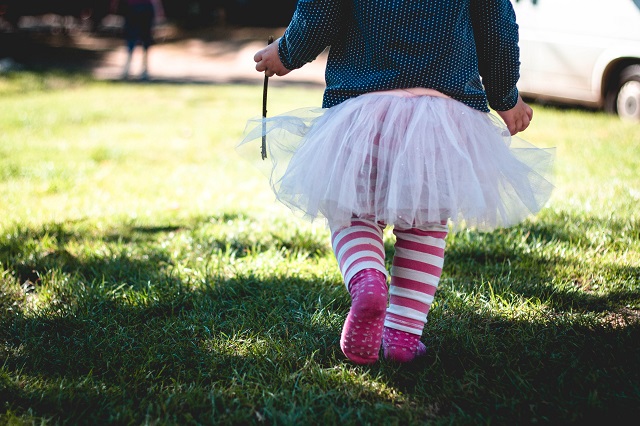
“We think our job as humans is to avoid pain, our job as parents is to protect our children from pain, and our job as friends is to fix each other’s pain. Maybe that’s why we all feel like failures so often—because we all have the wrong job description for love.” ~ Glennon Doyle Melton
.
My friend told me what it’s like to bring her kids to the park these days:
“All of the parents rush over to try to catch each other’s kids if they look like they might fall. Even when they are just wobbling on the sand. So I feel like a bad mom if I let my kids fall.”
I didn’t know how to respond.
I’m not a parent.
However, as a teacher, I know how frustrating it can be when parents make excuses for students’ bad behaviour or low grades and try to protect them from experiencing sometimes painful consequences that could help their children learn and grow.
The effects of helicopter parenting have been well-documented; it can lead to increased anxiety and depression, makes children unable to cope with failure, fosters a sense of entitlement, and stunts emotional and cognitive development.
I told my friend about my grandma who had eight kids in 10 years.
“There’s no way Nanny would have been able to watch all of her children,” I said. “She had to let her children fall down. They learned how to get back up themselves, since no one was around to catch them.”
They all turned out to be healthy, successful contributing members of society. (Even Uncle Eddy who came home one day with a stick in his head.)
It’s not only parents at the park who prevent their children from falling. In our happiness-obsessed culture, we often feel like bad parents, bad teachers, bad friends—bad people—when we allow others or ourselves to fall.
When life knocks us down, we’re encouraged to “look on the bright-side,” hire a personal trainer, browse the self-help section at the local bookstore, join a club with like-minded people, go shopping, take a personal day, and so forth.
While all of these options can be very healthy and helpful, the problem is that we don’t allow ourselves, or the people we love, to feel pain.
I recently lost my job.
After sharing the news with colleagues and friends, I was constantly reminded that I was “better off,” to “stay positive,” and “that something better would come up in no time.” The thing is that I knew that I was fine. I knew I would find another, possibly better, job.
But, the reality was that the current situation was painful and upsetting, and I needed to release feelings of grief and anger instead of faking a smiley face.
I needed to have the space to sit with my pain, so that I could accept it, learn from it, and ultimately let it go.
I know my friends and colleagues were just trying to protect me from suffering, but by doing so, they were only making it worse.
In fact, avoidance of sadness and pain has been associated with increased depression and anxiety. It can also lead to destructive behaviours such addition, alcoholism, gambling, overworking, and overspending. While these behaviours may help protect us from feeling pain in the moment, they can be very negative to our long-term health.
Avoiding suffering can also prevent us from being happy.
In a popular essay, blogger and author Mark Manson argues that our lives are defined by the pain and suffering we are able to sustain, because happiness requires struggle.
There is no such thing as a pain-free life. And we can’t achieve anything meaningful without being willing to endure the struggle required to get there.
He writes: “You can only avoid negative experiences for so long before they come roaring back to life. Therefore, what we get out of life is not determined by the good feelings we desire, but by what bad feelings we’re willing and able to sustain to get us to those good feelings.”
We can’t get the beach body without putting in the hours at the gym.
We can’t develop amazing romantic relationships without making ourselves vulnerable to heartbreak.
We can’t achieve our dreams without taking risks or making sacrifices.
Therefore, by preventing ourselves from feeling pain—by protecting ourselves and our loved ones from falling down—we are in fact hindering their ability to achieve a state of deep joy and meaning. Happiness without pain is fleeting; it’s nothing but temporary, empty pleasure.
Of course, there are some times when people need to be caught, times when falling down would lead to irreversible self-harm. But, there’s a difference between catching a child who’s about to superman-dive off the play-structure and catching one who’s about to tumble onto the sand.
So, let’s all drop the kid gloves.
Let’s stop catching the kids in the playground. Let’s allow our friends and loved ones to retreat into the darkness they need after a personal or professional crisis. Let’s allow ourselves to feel pain when life gives us a blow.
Let’s accept that it is okay to fall.
~
Relephant:
A Life without Suffering is not the Life I Want.
~
Author: Shannon Mullen
Image: Unsplash/Marjorie Bertrand
Editor: Yoli Ramazzina
Copy Editor: Lieselle Davidson
Social Editor: Molly Murphy










Read 4 comments and reply